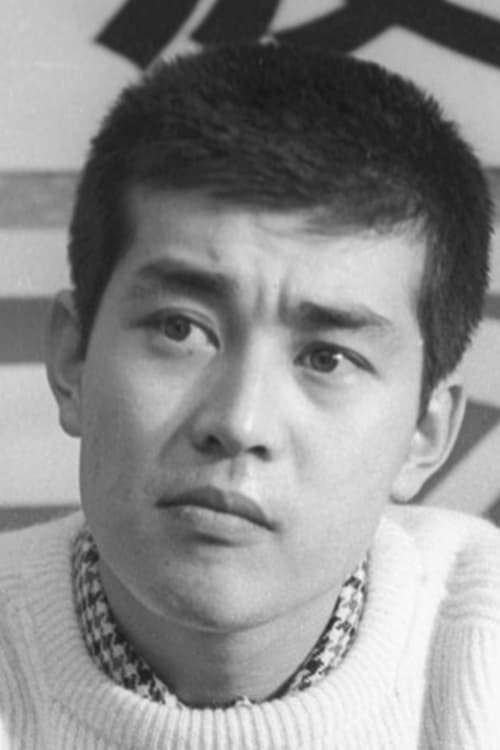
Shintaro Kazama (voice)
Kazuma Kiryu is demoted from his clan after taking the blame for his boss's murder. After a decade in prison, Kiryu sets out in search for his old friends who have gone missing.

Masato Kogure
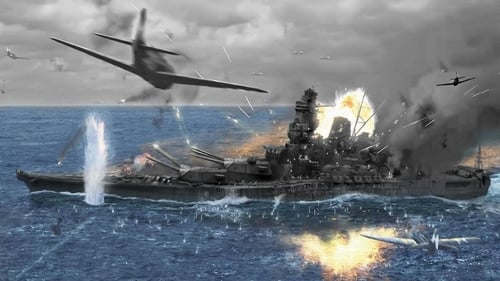
Directed by Junya Sato and based on a book by Jun Henmi, "Yamato" has a framing story set in the present day and uses flashbacks to tell the story of the crew of the World War II Japanese battleship Yamato. The film was never released in the United States, where reviewers who have seen it have compared the military epic to "Titanic" and "Saving Private Ryan."

Seizo Monoi
A Japanese film by Hideyuki Hirayama, Lady Joker is a detective thriller with elements of social commentary on Japanese society that is based on the 1997 bestselling novel by Kaoru Takamura.
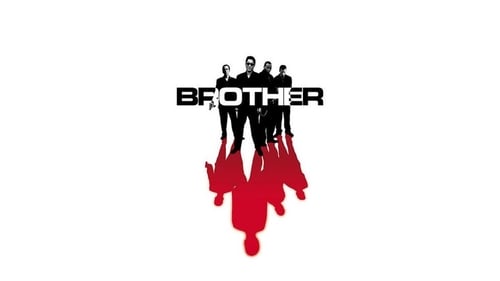
Jinseikai Boss
A Japanese Yakuza gangster’s deadly existence in his homeland gets him exiled to Los Angeles, where he is taken in by his little brother and his brother’s gang.

Screen icon Sayuri Yoshinaga stars in this historical melodrama about geishas in the southern city of Nagasaki set during the 1920s. Though she was sold to a geisha house at a young age, Aihara (Yoshinaga) has since become a master samisen player and woman of great elegance. Though not especially rich, she doles out money to street kids, in particular, a pretty young flower vendor named Oyuki, who becomes Aihara's godchild of sorts. Yet when a geisha (Reiko Takashima) from a rival red-light district insults Aihara and her brethren, she fights back. Soon an all-out geisha war looms. Dapper businessman and amateur scholar Tojiro Koga (Tetsuya Watari) appears on the scene and defuses tempers -- suggesting that difference be settled through a competition of artistic abilities. Smitten with her talent and mature beauty, Koga invites Aihara to record Nagasaki folk songs before they disappear forever
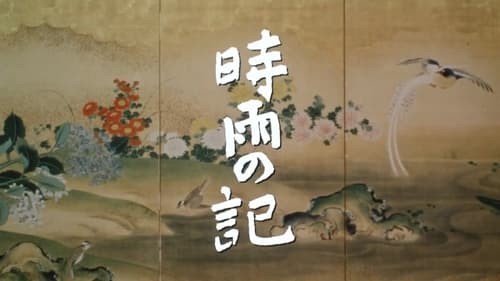
壬生孝之助
Takanosuke Ushio and Tae Horikawa are unable to forget each other, even though they met and fell in love 20 years ago. They had promised each other that they would build a retreat in Shiguretei, but Ushio was hospitalized after a stroke a few days later, and when his wife, Takako, rushed to the hospital, she discovered their love affair, which in reality had not gone beyond kissing. Now, 20 years later, against the advice of her ikebana mentor, Tae rushes to meet Ushio at Shiguretei, only to see him clutching his chest in pain. Eventually, the design and plans for the dream retreat are seen by Tae, but she has to visit Kyoto alone... or maybe she's heading for somewhere else.

The film opens with kidnappers of a corporate executive making an unusual ransom demand: that a wizened executive from another company haul large bags of money through downtown Tokyo as the media documents his every move. When the first old man almost dies from exhaustion, a second, and eventually a third elderly corporate fat cat is ordered to do the same. The police detective assigned to the case (Tetsuya Watari) and his younger partner (Masatoshi Nagase) are livid with indignation at this sorry spectacle. They learn that these four men were involved in a massive industrial spill that poisoned an entire rural hamlet 20 years previous. Suddenly, the detective -- who studied in the States and apparently absorbed some John Wayne-like mannerisms in the process -- isn't sure who are the victims and who are the villains.

Masajiro Miyazawa
“Night Train to the Stars” is a biography of the fascinating life of Kenji Miyazawa, one of Japan's most beloved fantasy novelists. Miyazawa is an idealist pledging with his friend Kanai to work for the improved life of farmers. Troubled by his family’s interest in money making and social status, he leaves home after graduating high school to join a Buddhist sect in Tokyo. After falling out with a friend, and receiving news about his sister re-emerging pneumonia, he decides to return home where starts his own experimental school, teaching new farming methods to young local farmers while also instructing them in music and arts. It was only after his death, through the help of his brother Seiroku, that his writings became widely read.

Kin chan no Cinema Jack is an anthology film starring Yuen Biao and produced by Jackie Chan
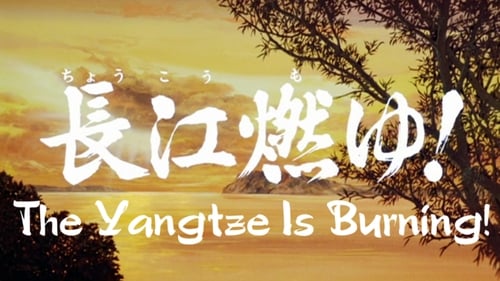
Cao Cao (voice)
Covering roughly 13 years, from Cao Cao's victory over Lu Bu in 198 CE, through the Battle of Red Cliffs in 208 CE, and the aftermath up until 211 BCE. As other players are swept from the board, the story focuses on Liu Bei and his increasingly desperate attempts to prevent Cao Cao from seizing all of China. The turning point is Liu Bei's recruitment of the best strategic mind of that generation, Zhuge Kongming, the Crouching Dragon.
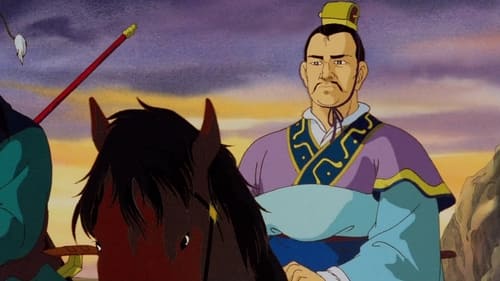
Cao Cao (voice)
Beginning during the Yellow Turban rebellion that initiated the downfall of the ruling Han dynasty. At the start of the story, both Liu Bei, its eventual protagonist, and Cao Cao, its eventual antagonist, are minor players. Liu Bei is striving to find a way to bring order to a chaotic world. As he puzzles he way toward the correct course of action, he befriends two powerful warriors, Zhang Fei and Guan Yu. Together, they take the Oath of the Peach Garden, to live and die together as warriors for justice. Meanwhile, Cao Cao is pondering how to fulfill his destiny as "a hero in a chaotic world or a villain in a peaceful one."
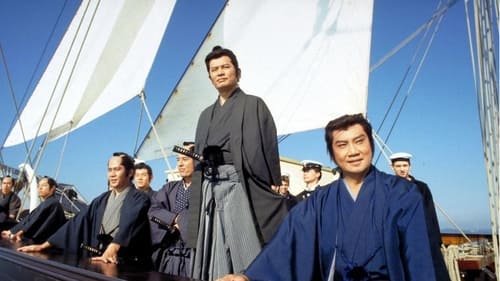
After the fall of the Tokugawa Shogunate, there was a series of battles fought while the former supporters of the Tokugawa shogunate retreated to the north where they actually started a sovereign nation that was recognized by more than one European country. Survivors of the Shinsengumi were among the followers of Enomoto Takeaki who took them to the northernmost island of Ezo where they fought their final battle at the star shaped fort, Goryokaku. The Japanese Civil Wars fought in the name of the emperor signaled the complete end of the feudal system and Japan’s entry into the modern world as those brave samurai tried to halt progress and learned that the age of modern warfare and weaponry had passed them by. Swords were no match for rifles and cannons, nor was any man a match for the power of the imperial flag. Japanese loyalty to the emperor has long defined the nation and culture despite the changing times.

Ayumi Ishida won the Blue Ribbon for the Best Actress.
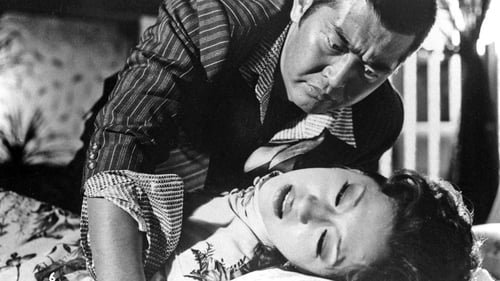
Kuroiwa
A police investigator cracks down on yakuza business, but once he realizes the police are in negotiations with certain factions, he sides with his own syndicate of choice.

Dramatic story of one man trying to make a difference.

Third Officer Inoue
Thriller about hijackers taking control of an oil tanker and threatening to blow it all up in Tokyo Bay.
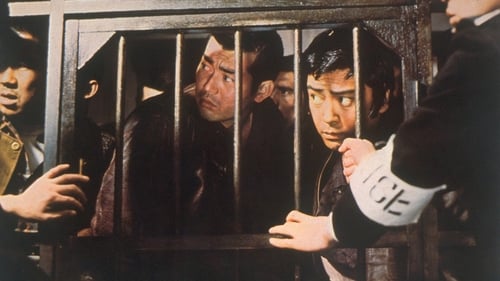
Rikio Ishikawa
A look at the life of renegade yakuza, Rikio Ishikawa, particularly the years from 1946 to 1950 when his violent antics get him in trouble with his own clan, Kawada, and then with the clan of his protector, Kozaburo Imai. In these years, he can rely on Chieko, a young Tokyo courtesan who gives him shelter. He's banished to Osaka, where he picks up a drug habit. Through it all, he keeps his friends and enemies off balance with unpredictable behavior - and he seems indestructible.

Based on the comic Gokuburi Deka.
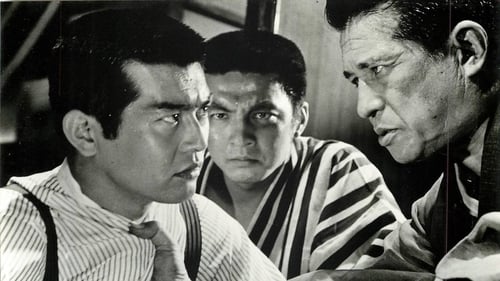
Seijirô Tanaka
Tai Kato’s early 20th century set yakuza epic about an ordinary merchant girl (Hiroko Maki) who crosses paths with an assassin (Tetsuya Watari). The encounter sends her to jail as a suspected accomplice. Years later she marries a yakuza boss, whose gang is affiliated with working class people.
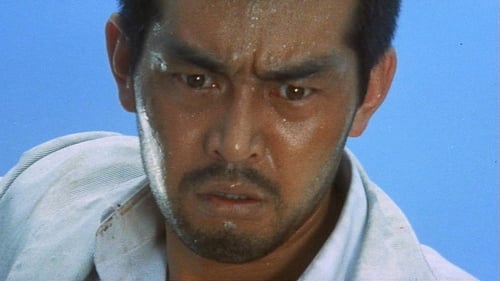
Detective Murakami
When his pistol is stolen, police detective Murakami is humiliated, especially when the gun is later implicated in a crime. Working with his superior, Chief Detective Sato, Murakami works feverishly to trace the location of his pistol, ultimately clashing with a gang of youthful Okinawans.

Based on the comic Gokiburi Deka.
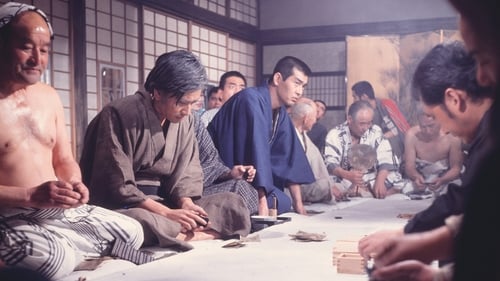
Kingoro Tamai moves with his wife and son to the port city of Wakamatsu. He organizes the Tamai-gumi, a stevedore group, to vie for work with two other powerful groups. Gingo is Tamai's chief rival who falls in love with the latter's wife and tries to kill Tamai.
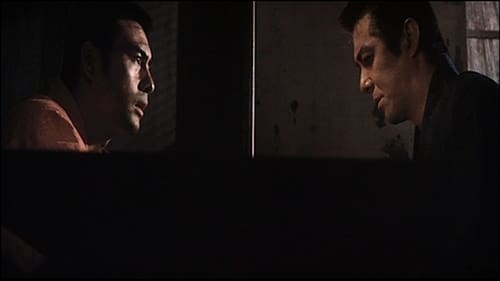
Centred on Aonari Hyokichi, a young literary man with aspirations to become a writer, and the surrounding people, including Kira Tsuneo and Tobigashikaku.

Masuda Toshio film starring Watari Tetsuya and Mori Masayuki, about a lone-wolf type (Watari) seeking love and defending the honor of an elderly widower (Mori).
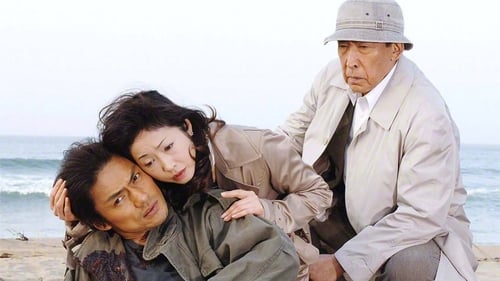
The story of the desperate struggle between the police and a large crime syndicate.

Goro Takei

Asakura was told he could leave the gang if he killed Takahata, but he failed and was sentenced to two years. When he was released, the Oyane group was crushed, and instead, the emerging gangster Hokuyokai was in charge of the Oyane group's territory.

In the late Taisho era. Umeshima Jinbei, the president of the Kanto Umeshima Kai, divided the area into the Kuroda family to the south and the Takeuchi family to the north in order to protect the security of Kame no Ii, which had opened up in place of the Yoshiwara brothel that had been burnt down in the earthquake, and had the Kuroda family rule their respective territories. Chichibu Yasaburo, the small head of the Kuroda family, had a good reputation as the mainstay of the family and was trusted by his boss Mankichi, but Furuno, who was in love with Mankichi's daughter Mie, who was in love with Yasaburo, informally informed the Takeuchi clan and took out Mankichi's seal and borrowed money from Takeuchi in the name of Yasaburo to line his pockets.

Young man returns from prison and sets out to destroy the gang that killed his friends and boss of his former gang.
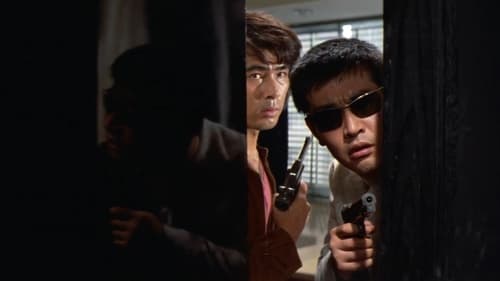
Yūji, fresh out of prison on parole, meets a stranger named Nao that asks for his assistance...

Rivalry between two young gangster groups who seek to extend their influence.

加田雄平
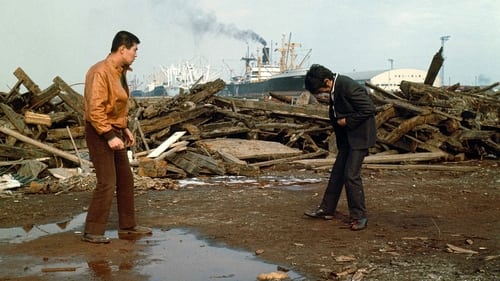
Four years ago, Teppei Hondo killed two people from the Shinwa group for the murder of his brother. After serving a 3-year prison sentence, he considered returning home, but his father, the boss of the Honda Group, told him to stay away for another year, so he went to sea. In the end, having returned, he again finds himself embroiled in a showdown between the yakuza.
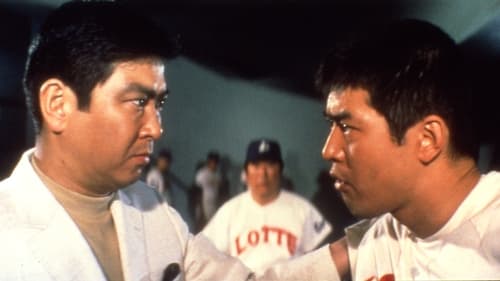
In a match where professional baseball referee Yuzo Tagami was observing a young referee, Hara, a player who got angry at the indecisive judge, knocked the referee down. Tagami lived with his wife and five children, but when he returned home, Hara, who had been suspended for a month, wanted to receive Tagami's Subaruta training.

Kurasawa
A real all-star cast turns out for this modern yakuza yarn.
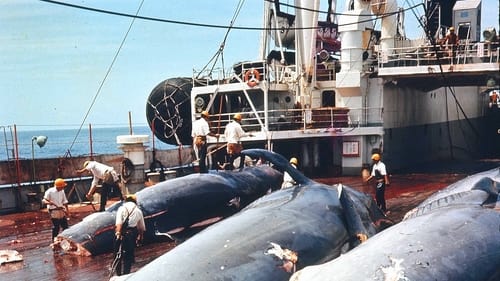
Yoji Kitami
Yoji Kitami, a fisherman's son, is a student in Tokyo. His father had died at sea and Taichiro, his brother, is sending him to the university. But the outbreak of violence by radical students and blockade of classrooms make studying impossible and Yoji goes home. Fortunately, he meets Katsuyuki Shinoda, a childhood friend, who works on a whaling vessel. Yoji decides to join him and rediscover a meaning in life. But finding sidework on a whaler is not so easy and Ogaki, a veteran harpooner, curtly turns him down. But finally, deeply touched by Yoji's earnestness, Ogaki reluctantly agrees to take him with them. Rules are very strict, for even one slight slip-up may jeopardize the safety of the entire ship. For a long time, it seems like a living hell, but with patience and courage, he begins to learn the ropes. And the day they sight their first whale, Yoji comes into his own and finds the real meaning of life.
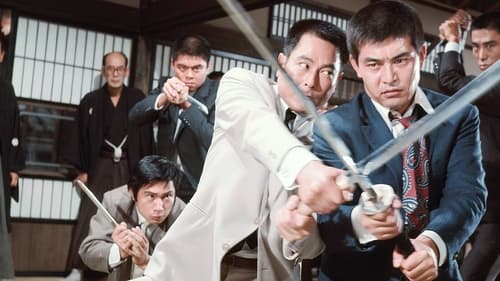
Keiji Takama
When Keiji Takama returns to Nagasaki, he finds many changes. The rights of the entertainment field that had been held by his family have been taken over by the Matsui Group, a new gangster setup. So he becomes head of the Takama Group to regain lost territory. With the cooperation of all the Bosses from Tokyo to Nagasaki, who had known his father, Keiji recovers the rights to put on shows at the City Hall. As he had feared, however, Matsui begins to interfere with his plans. Keiji's men are furious, but he knows better than to take up the cudgels with Matsui at this important time. Whatever Matsui does, Keiji goes one better. Frustrated and bitter, Matsui calls in the help of Koiwa, a killer. Now, having tried his best to oust Keiji but finding that he is made of sterner stuff than he had counted on, he decides to have Koiwa do away with him for good.

Kazama and three others defeated Yoshie Sangyo, but the Nishio group was disbanded due to public pressure, and the territory belonged to the Hirata group.
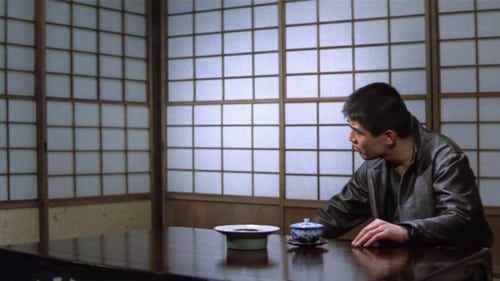
Goro Fujikawa
Goro has always been a lone wolf. When he arrives at an industrial city in Keihin, there is certain restlessness in the air. The Iriezaki family and the Kanto Touyu-kai were in the midst of a territorial dispute. Goro was quick to notice, but had no intent to take sides. At a department store nearby, he sees an elevator lady being harassed by a couple of hoodlums. Goro decides to intervene. Unbeknownst to him, the hoodlums are Touyu-kai members – and the girl has strong ties with the opposing family.
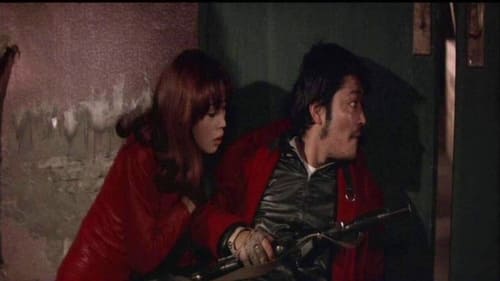
A professional hunter, Tetsuya, returns from Alaska to find that his hometown had become a lawless slum. He is shocked to learn that his younger sister had committed suicide after being raped by unknown men. One day, he rescues a girl from being attacked by some gang, and discovers that the same gang had driven his sister to death. Using his lethal hunting skills, Tetsuya begins to take revenge…
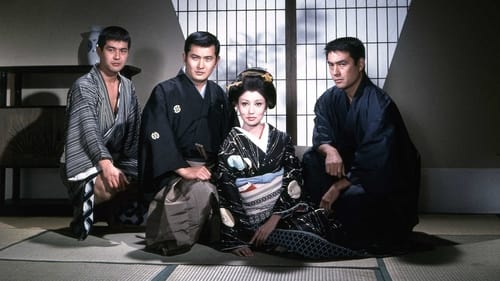
It is the end of the Taisho era (1912-1926), and at the Hanazuki-tei theatre in Asakusa, the famous performance of storyteller Koiso Kikuji and performer Kataoka Koshin is reaching its climax when the Tawaraya family interferes... This is an entertaining action film bursting with righteousness and humanity, centred on men who try to live righteously against a corrupt boss who preys on the performers.
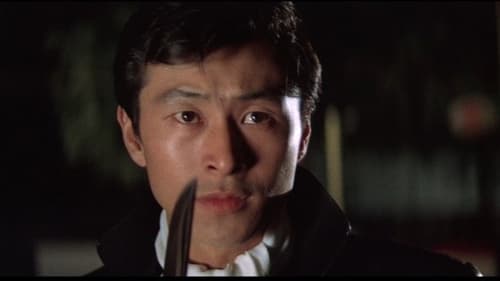
Goro Fujikawa
A street war breaks loose between two rival gangs in the Kansai region of Japan. Goro is in the middle of action. Through a knife fight against Sueo, a high profile gangster from Busou-kai, Goro notices a familiar face approaching him from amidst the chaos - his girlfriend, Yuri. Goro had sent her to safety, but she had returned, aching to see him. Caught between Goro and his enemy knife, she reunites with her love - the price was her life.

Goro Fujikawa
On a cold winter day, Goro Fujikawa (Tetsuya Watari) and Masahiko murder the mob boss of Meishin-Kai. The deed costs them time in prison, but Goro had no shred of regret. When Goro is released 2 years later, Masahiko is dying in prison hospital and entrusts his last wish; "find my sister and take care of her." Goro leaves as a free man with a mission, but soon finds that he might have been better off in jail.

Naoyoshi
Rokurō starts a part-time job on a fishing boat, but the ship has an engine failure in the middle of the Pacific Ocean.
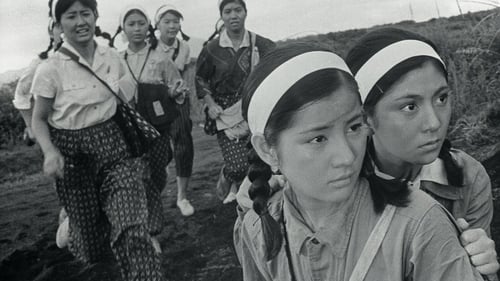
Young man
In 1943, critical developments in the Pacific War have placed Japan at a disadvantage, although the fiery breaths of war hadn't yet reached Okinawa Normal School for women. Nothing seemed the least bit out of the ordinary, as Kazuko and her friends enjoyed a day of sports. A year later the war takes a devastating turn, as US forces plan an amphibious attack known as "Operation Iceberg" on the Ryukyu island.

In a high school, two men are fighting over a beautiful female teacher who has been assigned as an English teacher.
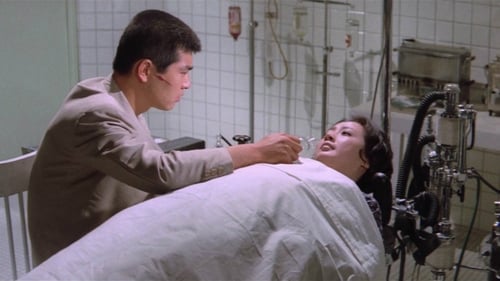
Goro Fujikawa
Goro Fujikawa (Tetsuya Watari) was indebted to Mitsugimoto. Sawada, a low rank yakuza with a gambling problem owed Mitsugimoto three million yen. This equation can only lead to one answer. Mitsugimoto needs to pay and Goro's coming to collect.

Takuya Tsugami
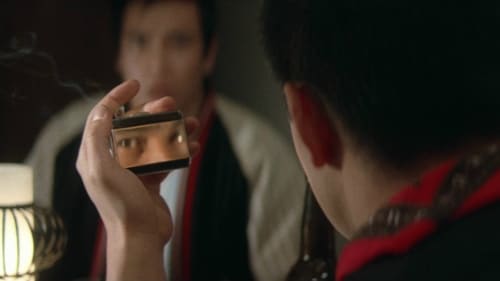
Goro Fujikawa
Goro (Tetsuya Watari) wants to put his dark past behind. He heads to Hirosaki City to offer his condolences to Yumeko and to reunite with Yukiko (Chieko Matsubara), but finds that Yumeko is fatally ill. Although Yukiko was taking care of her, she is pressed for money. Goro wants to help and knows that there is only one way to come up with fast money.

Tetsuya Watari, a modern youth idol, co-stars with Tetsuro Tamba for the first time, and a young man who survives freely is an action giant who swings down the iron arm of justice and anger toward evil
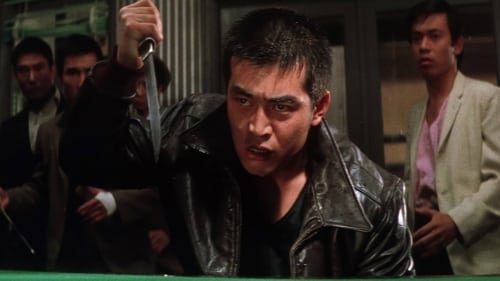
Goro Fujikawa
Goro had grown up in the yakuza world. As an active member of the Mizuhara family crime syndicate, he expressed his loyalty by always putting himself in the forefront of every battle. Violence never bothered him. However, after being sentenced to three years in prison for stabbing a rival gang’s hit man, he becomes disenchanted with the Yakuza life style. Goro is determined to start anew, but karma catches up. His two closest friends are murdered by his ex-boss. He is left with two options: to kill or be killed.
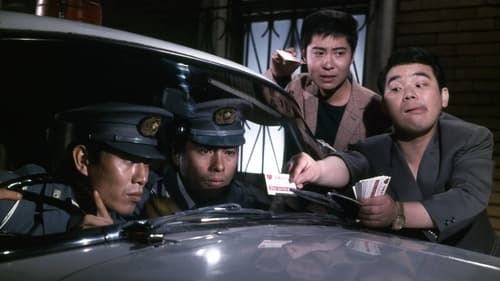
Akai
It had been a year and four months since Mitsuo was last on a movie set. Welcomed back by director Ishizaki and his film crew, Mitsuo is excited to star as the lead in "My Sweetheart". One day, half way through production, he meets his friends from a popular rock group, "The Spiders". Through their discussion regarding the climax scene, they criticize that the script is too grim. In a notion to protect their friend's career, they decide to pay the scriptwriter a little visit.
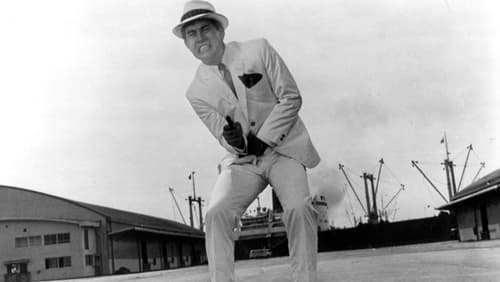
Goro
A young yakuza hitman named Goro does a job and needs to hideout away from Tokyo for a while. He hangs out with loose women and hard men and always manages to stay one step ahead of the law. In his exile, he comes under suspicion for a murder and meets the girlfriend of the murdered man. They develop a strange bond while unbeknown to Goro, another hitman is after him for the job he did in Tokyo.

Makoto Katagiri

Japanese drama film.
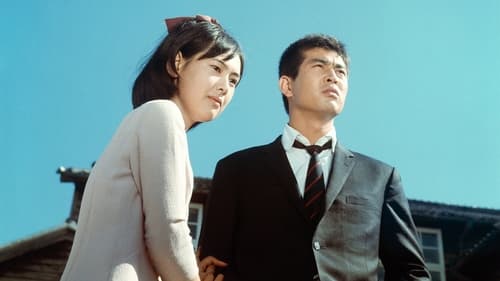
Tetsu
Sequel to Tokyo Drifter.

A girl is in love with two men.
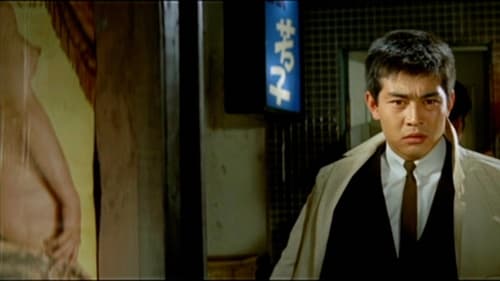
Shôichi Kokubu
A remake of the 1957 classic "Man Who Raised a Storm" with Watari Tetsuya in the title role.

Yukio Mihara
One morning, Kazue is nearly knocked over by a motorbike in front of an instrument store, breaking all the records that she was carrying. The two connect instantly and begin seeing each other every day. However, Iwai, Yukio’s foster parent, is concerned - Yukio had been exposed to the atomic bomb when he was four years old and had been showing symptoms of atomic radiation, hospitalizing him in the Genbaku Atomic Bomb Survivor’s Hospital. Unfortunately, nobody knows when the symptoms may return. When Yukio passes out from anemia during work, he decides to part with Kazue. A couple of days later, Yukio tells her of his destiny at the Hiroshima Peace Memorial Park, but Kazue passionately encourages him.
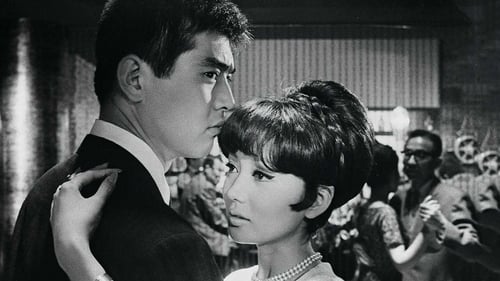
Makoto Kanô
A deep mist envelops the port city of Yokohama. The scent of crime is everywhere. As an executive member of a drug trafficking syndicate, Kano is pretty high up in the food chain, but "status" bears no value to him. All he cares for is Ayako, the boss' mistress. After one last job, they intend to run off together to Hong Kong, but their plans are hindered when an uninvited yakuza stirs up a vicious shootout. In the midst of it all, Ayako is kidnapped.
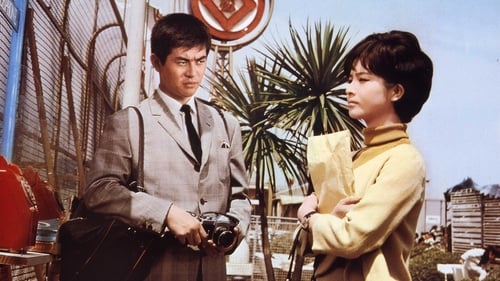
College life starts off great for Michiko. She and her friend join the Italian Culture Research Club that performs canzone, a genre they are both in love with. The only problem is that the club doesn't have enough money to buy instruments for them to play. One day, the two come across a talent show called the "Mari Sono Look-Alike Contest" that promises the winner a cash prize. And Michiko looks a lot like the star.

Hiroshi
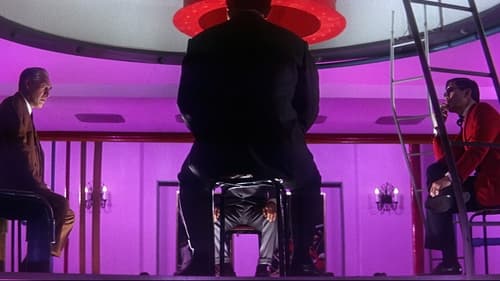
Tetsuya "Phoenix Tetsu" Hondo
After yakuza boss Kurata dissolves his own criminal empire, a rival kingpin offers a position to Kurata's top operative, Tetsuya "Phoenix Tetsu" Hondo. When the fiercely loyal Tetsu declines, Otsuka taps unstoppable Tatsuzo the "Viper", a ruthless gun-for-hire, to assassinate him. As the Viper trails his target through the countryside, the agile Phoenix Tetsu grows concerned that one of his former associates has betrayed him.

Hiroshi is the second officer on board the Hakuromaru. Lead by his captain, he heads out to town to recruit new crew members for their next voyage. Hiroshi is baffled when his captain approaches the Daigo-Kuroshiomaru crew, a notorious group nicknamed "the hoodlums of the sea". Their offer is greeted with scoffs and quickly turned down.

Saburo Ohinata
The brother of an up-and-coming kendoka is mysteriously murdered while working on a new model of motorboat.

After World War II life in Japan was hard. There was lawlessness, rapine, never enough food or money. One girl, raped by three men, called out the name of Kentaro before she died and this was something that people in this small section of downtown Tokyo remembered. Life went on, however, and local boss Hiramatsu Daizo decided to build a market, aided by his daughter Aya. They met opposition until one day a young man named Kentaro appears who it is rumored he was the vengeful lover of the murdered girl. He lives with Sabu and Yukari, the children the girl looked after before she died, and helps with the market, coming to the rescue with a bulldozer when Daizo is threatened by a rival group. When Daizo is finally killed, Kentaro carries on the work. Finally the market is completed, the rival group makes a last stand but is machine-gunned down by Kentaro who, after saying that he was not the one whose name the dying girl called out, leaves town for good.
